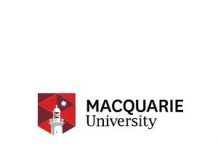When the University of Sheffield’s Global Opportunities and Engagement team realised that their various admin systems had become too cumbersome, they called for help. Rachel McAssey explains how her team of lean practitioners carried out a process review that has produced many benefits including significant time savings.
In March 2016 we were contacted by staff from Global Opportunities and Engagement who gave us a list of systems that they used for dealing with the administration of Erasmus and Study Abroad students. It showed 25 different systems (this rose to 35 as we unpicked the process), for a team of five people dealing with approximately 2,500 students per year. Rather than wait for a systems solution they wanted to investigate whether a lean review could bring them some more immediate benefits.
We scoped the project. The aim was to:
- Create a more efficient process which provides accurate information that instills confidence
- Identify where standardisation is appropriate
- Create processes that can be easily covered by other staff with a clear implementation plan
We agreed to run a process improvement event in May 2016. To make things a little more difficult, during that period the process improvement unit was short-staffed and we questioned whether our standard model of co-facilitation could be compromised. We decided to approach one of our experienced process improvement practitioners and I’m delighted to report that he agreed to co-facilitate the event with me. His input directly contributed to the success of the project.
‘The team demonstrated enormous commitment’
The event was very intense: the project team comprised only four people, three of whom unpicked processes that made up a substantial part of their day-to-day workload. When we got to the point of identifying and making improvements, the team demonstrated enormous commitment to their students and the institution and did an awful lot of soul-searching to make as many improvements as possible.
Here are some key outputs from the four days:
- A standard process for managing incoming Erasmus and Study Abroad students. The process has an 80% reduction in process steps, offers greater visibility to the students about the status of the application, reduced errors, and removes the need for matching up paperwork and manipulating data.
- An improved process for Study Abroad students going to other universities on placement, removing work from academic tutors, delivering a better service to students and once again removing a lot of data manipulation and checking.
- An improved process for Erasmus students going to other universities, removing the need to manually input 400 records into two different systems (i.e. 800 in total), improved data management and reporting by keeping all of the data in one system rather than three or four. Risk to the university has also been mitigated.
- A reduction in the number of systems used from 35 to 15 (and some of the 15 are improved systems).
Simplify, simplify, simplify
This project had many examples of improvement, here are a couple:
- The process for students going to other placements. Previously tutors were asked to identify and confirm eligible students, this was improved by creating a report from the central system that identified eligible students (this report takes minutes to run rather than weeks of waiting, checking and verification). Another part of the process where students had previously had to complete an application form and print it out was changed so that they now only need to complete a simple Google form which can then be emailed to them.
- The processes for incoming students were previously very different for those on a European and non-European placement. The changes aligned both processes which makes it easier for a small team to cover each other’s workload and ensures a more standard experience for applicants. In addition the process for student visa applications has been streamlined making it quicker and removing the need for checking and data manipulation.
The team had a large amount of actions and these were completed over a six-month period (no mean feat for such a small team which also has a busy day job!). There was a further challenge when we had to switch sponsor during July 2016 due to some structural changes in the university.
A willing team makes things easier
Overall this project has led to significant time savings for the team – at least 125 hours pa and has freed up key months of work. Academic tutor and student time has also been freed up, process steps have reduced by 18% and overall there’s been a 12.5% reduction in handovers from one department to another. Further, there’s been increased staff and student satisfaction. The number of systems has dropped from 35 to 20 and there are also some ongoing efforts to include the work into a system that will free up staff time and reduce the process even more.
This project benefited from having two very supportive sponsors, a small yet focused team and the team’s willingness to keep on looking for better ways of working.
Erasmus wrote, “I cannot tell you, dear Colet, how I hurry on, with all sails set, to holy literature. How I dislike everything that keeps me back, or retards me”, I think that the project team also demonstrated this approach.








